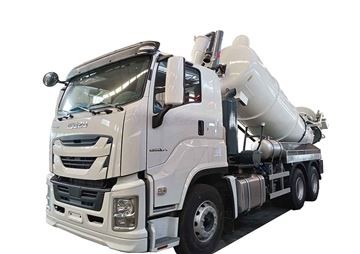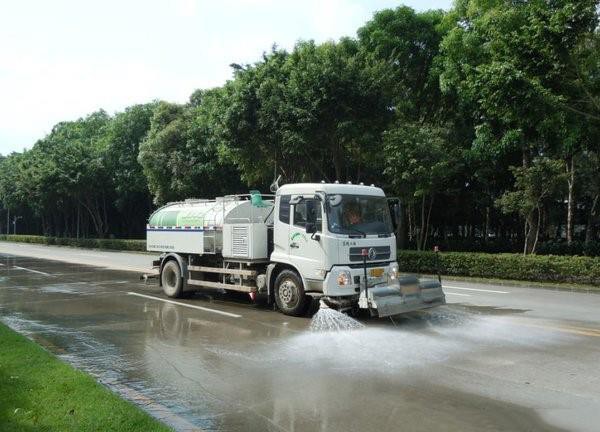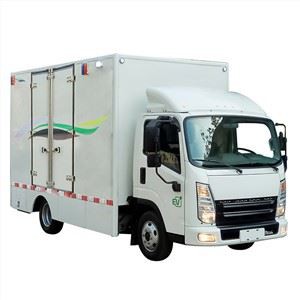Maximizing Efficiency and Sustainability with Used Roll-Off Containers

In today’s fast-paced world, managing waste efficiently is paramount for both companies and individuals. One of the tools that have surged in popularity for waste management is the roll-off container. Particularly, used roll-off containers offer an economical solution without compromising on efficacy. This article will delve deep into the world of used roll-off containers, outlining their benefits, applications, purchasing considerations, tips for maintenance, and much more.
Understanding Roll-Off Containers
Roll-off containers are large, rectangular containers equipped with wheels for easy transportation. They are typically used for collecting and transporting waste materials from job sites, construction projects, and renovations. The design allows them to be rolled off the trucks easily, hence the name “roll-off.”
Benefits of Using Roll-Off Containers
Utilizing roll-off containers comes with a myriad of advantages:
- Space Efficiency: These containers maximize space, allowing for large amounts of waste to be compressed into one container.
- Cost-Effectiveness: Used containers can significantly reduce costs compared to new ones.
- Versatility: They can be used for various waste types, including industrial, residential, and commercial waste.
- Environmental Impact: Encouraging recycling and proper waste disposal reduces landfill burdens.
Types of Roll-Off Containers
Standard Sizes and Capacities

Roll-off containers come in various sizes. The most common sizes include:
| Container Size (Cubic Yards) | Typical Use |
|---|---|
| 10 Cubic Yards | Small renovation projects, landscaping waste. |
| 20 Cubic Yards | Medium-sized renovations, construction debris, and cleanouts. |
| 30 Cubic Yards | Commercial projects, large renovations, bulk waste removal. |
| 40 Cubic Yards | Large construction sites, industrial projects. |
Specialized Containers
In addition to general roll-off containers, there are specialized options available:
- Compactor Containers: These containers are equipped with a compactor to reduce the volume of waste.
- Open-Top Containers: Ideal for construction and demolition waste where easy access is required.
- Rear-Load Containers: Typically used for municipal waste collection in residential areas.
Where to Buy Used Roll-Off Containers
Finding quality used roll-off containers can help save costs. Here are some prevalent sources:
Local Equipment Dealers
Many construction equipment dealers offer used roll-off containers at competitive prices. Often, these dealers provide warranties or guarantees for their products.
Online Marketplaces
Websites like Craigslist, eBay, and specialty equipment marketplaces are great places to find used roll-off containers. When using these platforms, always ensure the seller has good reviews.
Auction Sites
Industrial auction sites often have used containers available, which can be purchased at a competitive price. This option requires some knowledge about auction techniques to ensure a good deal.
Factors to Consider When Purchasing Used Roll-Off Containers
Before buying a used roll-off container, consider the following aspects:
Condition

Inspect the container for rust, dents, and structural integrity. Containers with significant wear and tear might require expensive repairs later.
Size
Choose the size that fits your specific needs. A larger container costs more and may not be necessary for smaller projects.
Price
Research the average cost of used roll-off containers in your area to avoid overpaying. Comparing prices from several sources can help you find the best deal.
Delivery Options
Check if the seller offers delivery. Some sellers may charge an additional fee for delivery, which you should factor into your total costs.
Maintaining Your Used Roll-Off Containers
Proper maintenance can extend the life of your used roll-off container significantly. Here are some tips:
Regular Cleaning
After each use, clean the container thoroughly to prevent the buildup of debris and odors. A pressure washer can effectively remove stubborn grime.
Inspect for Damage
Regularly check for damages, such as rust or dents, which could compromise the container’s structural integrity. Prompt repairs will help maintain its functionality.
Proper Loading Practices
Ensure that the waste is evenly distributed to prevent tipping and overloading. Follow local regulations about weight limits to avoid fines.
Common Applications of Used Roll-Off Containers
Used roll-off containers can be applied in various scenarios:
Construction and Demolition Sites
They are essential for removing construction debris, saving time and labor costs. Having multiple containers on-site can streamline waste management.
Residential Cleanouts
During home renovations or spring cleaning, roll-off containers make it easy to dispose of large amounts of waste efficiently.
Landscaping Projects
Used roll-off containers can collect excess soil, branches, and other landscaping debris, keeping your worksite tidy.
Cost to Rent vs. Buy Used Roll-Off Containers
Deciding whether to rent or buy can significantly affect your budget:
Renting Roll-Off Containers
Renting can be ideal for short-term projects. Typically, the rental fee ranges from $200 to $500 per week, dependent on the size and service.
Buying Used Roll-Off Containers
The upfront cost of buying a used roll-off container ranges from $1,500 to $3,000, including maintenance and repairs over time. This option is more cost-effective for long-term use.
Environmental Impact of Roll-Off Containers
Using roll-off containers contributes positively to the environment in several ways:
Facilitating Recycling
Roll-off containers give individuals and businesses a designated spot to gather materials for recycling programs, driving down overall waste production.
Promoting Sustainable Practices
By enabling efficient waste management, businesses are encouraged to adopt practices that reduce their environmental footprint.
Frequently Asked Questions (FAQ)
1. How much can a roll-off container hold?

The capacity of a roll-off container can range from 10 to 40 cubic yards, depending on the size chosen.
2. How do I choose the right size roll-off container?
Consider the type and amount of waste you need to dispose of, then choose accordingly based on container size charts.
3. What types of waste can I put in roll-off containers?
Common waste types include construction debris, household junk, yard waste, and more. Always check local regulations for prohibited items.
4. Can I place the container on the street?
Yes, but you may need a permit. Check with local regulations regarding placement and permits prior to delivery.
5. How long can I keep a rented roll-off container?
Rental periods can vary, but typically range from a week to a month. Be sure to discuss this with your rental company.
6. Do I need to clean the container before it’s picked up?
While not always necessary, it’s courteous and can prevent additional fees for excess debris left in the container.
